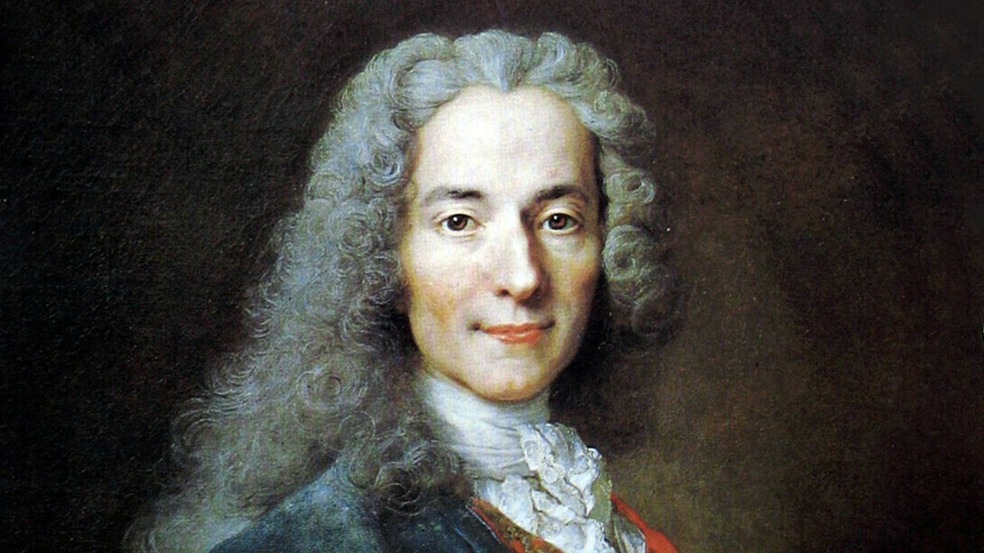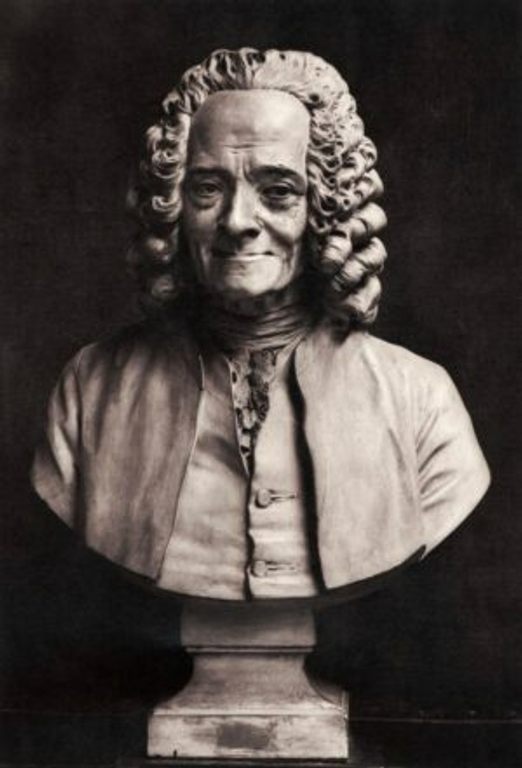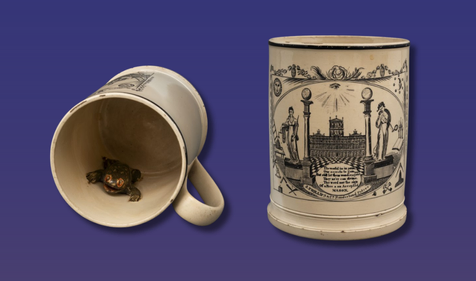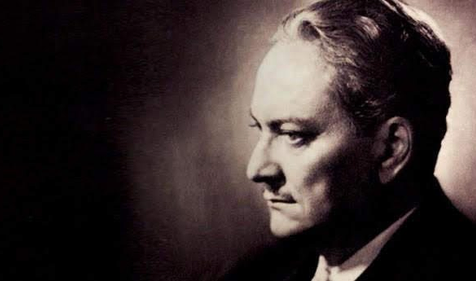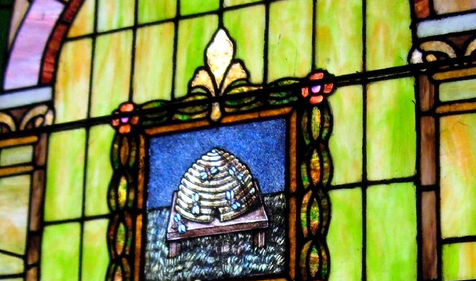You may know Voltaire as a leading philosopher and writer of the Enlightenment period, but what many may not know is that he was initiated into Freemasonry just a month before his death in 1778.
You may know Voltaire as a leading philosopher and writer of the Enlightenment period, but what many may not know is that he was initiated into Freemasonry just a month before his death in 1778. While his time as a Freemason was short, Voltaire’s lifelong legacy of rebelling against intolerance and bigotry make him a Brother we hold in high esteem.
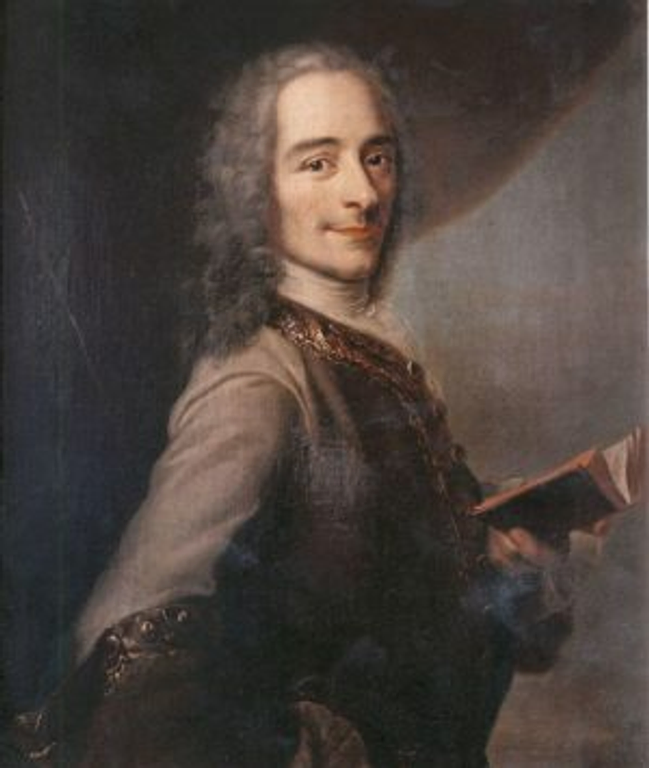
Early Life
Born François-Marie Arouet in 1694, in Poitou, France, the son of a notary, Voltaire grew up well-educated with an upper class background. He attended the Jesuit college of Louis-le-Grand in Paris, where he developed his knack for writing in all forms and a passion for social life and theater. After college, against his father’s wishes, Voltaire focused his career on writing and literature in place of law.
Voltaire established his early writing career in Paris, during the more colorful and progressive Regency era (1715-1723), which took place between the reigns of Louis XIV and XV. Growing up, Voltaire witnessed the intolerance of the French monarchy, ruled by the Catholic Church, which made him skeptical of religious institutions as a whole. As a response, Voltaire developed a politically satirical and witty style of writing, which made him quite popular amongst Parisian elites at the time. He produced his first literary success, Oedipe, a tragedy, in 1718, in which he coined the pen name “Voltaire.”
Oedipe gained him notoriety, but his anti-establishment ways would often get him into trouble with authorities. Following an argument with an aristocrat, Voltaire was forced into exile in England in 1726.
Leader of the Enlightenment
Voltaire was heavily influenced by England’s more liberal government. It was in England he studied the works of John Locke and Isaac Newton, which led him to develop a philosophy that was deeply linked to science, facts, and reason. He believed such great scientists and philosophers thrived because of England’s large population of diverse religious backgrounds.
Voltaire returned to France from exile in 1729 and published his work Lettres philosophiques in 1734, a brief yet impactful summary inspired by what he learned in England that, in turn, criticized the French government. Lettres philosophiques introduced a modern way of thinking that deemphasized organized religion and focused on the progress of arts and sciences to fulfill man’s destiny.
It’s publication led to a warrant for Voltaire's arrest, causing him to go into hiding in the French chateau of Émilie du Châtelet, whom he would start an affair with over the course of the next decade. Émilie du Châtelet was as studious as Voltaire, and inspired his increased focus on the sciences and metaphysics. Together, they published a number of works that brought little known scientific theories from England to France, before she died during childbirth in 1749.

Voltaire was a master at simplifying difficult material, and is responsible for the anecdotal tale of how Newton discovered gravity by an apple falling on his head. Many popular phrases today can be attributed to Voltaire, including “we must cultivate our own garden” which came from his bestselling novel Candide (1759).
As a successful writer, Voltaire used his “celebrity” status to speak out and vouch for citizens who were wrongfully prosecuted. Over the course of his life and through his works, Voltaire emphasized the use of humanitarianism over brute force. He realized change could be brought about by pressure from public opinion, stating “Opinion rules the world, but in the long run, it is the philosophers who shape this opinion.”
Masonic Career
Voltaire was known in his social circles as a Deist, and saw religion as a vital means for people to connect with one another. Voltaire’s wit and wisdom allowed him to meet many notable people in his day, among them Brother Ben Franklin, whom Voltaire met at the Academy of the Sciences in 1778, while Brother Franklin was minister to France.
Ben Franklin had been a practicing Freemason for 40 years at that point, and was hoping to join la Loge des Neuf Sœurs (Lodge of the Nine Sisters) in France to form connections and bring aid to America during the American Revolution. Brother Franklin joined the Lodge of Nine Sisters in 1778 and, in April 1778, convinced Voltaire to join as an Entered Apprentice Freemason in Paris. Voltaire’s membership was representative of the free thinking ideals of the Lodge of the Nine Sisters. Later, Ben Franklin would be raised to Venerable Master of The Lodge of Nine Sisters, serving from 1779 to 1781.
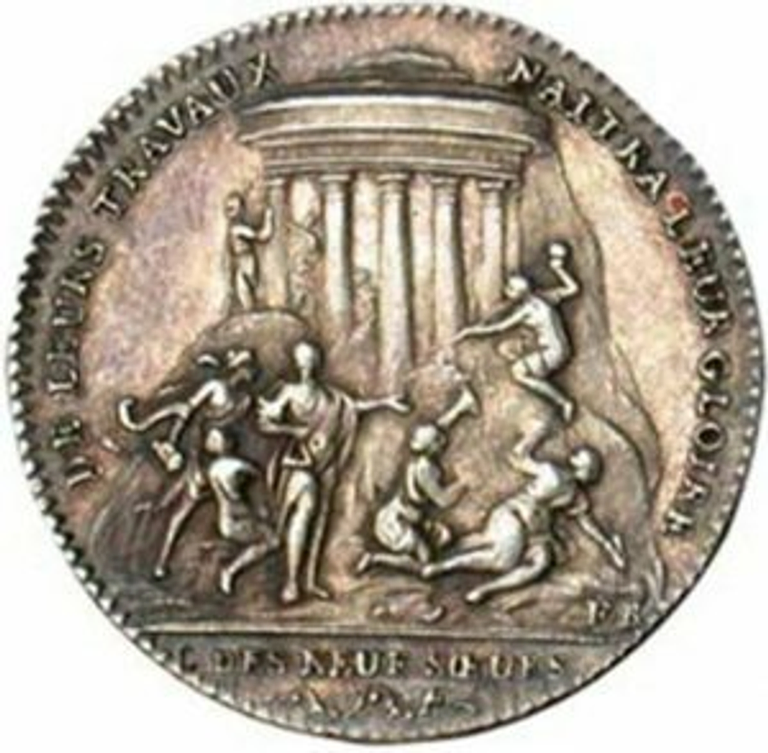
Death & Legacy
Voltaire became ill and passed away in Paris on May 30, 1778, writing "I die adoring God, loving my friends, not hating my enemies, and detesting superstition." Brother Voltaire left behind a rich life and legacy of seeking justice and standing firm in one’s beliefs, and is regarded as one of the leading minds of the Enlightenment era. Though he was only a Freemason for a short time, his exemplification of our core values, such as justice and tolerance, over the span of his life make him a Brother for all to revere.
Related Stories
Discover additional Scottish Rite blogs and news on this topic.
-
A Jolly Masonic Mug
History
Read More about A Jolly Masonic Mug
-
Manly P. Hall: Philosopher, Mystic, and Freemason
Famous Masons
Read More about Manly P. Hall: Philosopher, Mystic, and Freemason
-
What Does the Beehive Mean in Freemasonry?
Degrees
Read More about What Does the Beehive Mean in Freemasonry?
